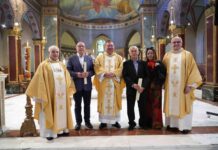Structural collapse in Amazonia
A tremendous force, on a scale never seen before, is devastating Amazonia in two dimensions that combine in a brutal manner: the Covid-19 pandemic, which engulfs the most vulnerable, and the uncontrolled increase in violence in the territories. The pain and the lament of peoples and the earth meld into a single cry.
“Indigenous peoples asked that the Church be their ally, a Church that would stand with them, a Church that would support their decisions, what they want and how they seek to build their future at this difficult time of pandemic.” (Cardinal Claudio Hummes).
In the various countries of Amazonia, the Church echoes the cries and the requests for assistance at a time when the very survival of this biome and its communities and indigenous peoples is threatened.
In Bolivia,1 indigenous peoples denounce the government’s lack of coordination and consultation for preventing and combating the pandemic; they also emphasize that all information is not disseminated in the original languages recognized in the Constitution.
In Colombia,2 the bishops acknowledge the government’s efforts, but stress that “indigenous peoples, peasant farmers and people of African descent are the groups at greatest risk, because they were already living in a situation of structural poverty, with food insecurity and malnutrition, without access to health care and safe drinking water.”
—-
(1 Statement by the indigenous peoples of the lowlands of Bolivia about the Covid-19 health emergency, 28 April 2020.
2 Statement by the bishops of Colombian Amazonía and Orinoquia to public officials and all citizens of Colombia.)
Food insecurity among indigenous peoples is also a concern in Venezuela,3 where these peoples are threatened with contagion because of illegal mining in their territories and because Venezuelan migrants and people from outside of their territories cross their lands to return to their countries of origin. Indigenous peoples are taking steps to isolate themselves and maintain control of their territories, such as increasing crop production to achieve food sovereignty.
In Brazil, 32 attorneys from the Federal Public Ministry (4) have declared that “the risk of genocide among indigenous peoples requires emergency action from public entities.” The National Indigenous Mobilization says that there is “an evident intention by the government to keep the Indigenous Health Care Subsystem from functioning.”(5)
In Peru, there is concern about the situation of various Amazonian peoples, including many indigenous people who have migrated to cities in search of work and are completely unprotected. The bishops of the Peruvian Amazon6 call on public officials to help those people return to their communities, ensuring that this is done according to protocols established by the Ministry of Health.
The Alliance of Indigenous Parliamentarians of Latin America has asked the World Health Organization to recommend that the region’s countries prioritize specific measures to guarantee protection of the lives of indigenous peoples in the face of this serious global pandemic.
The Coordinator of Indigenous Organizations of the Amazon River Basin (COICA) requests contributions to an emergency fund to protect the 3 million inhabitants of the tropical forest who are vulnerable to the novel coronavirus.
The Catholic Church, meanwhile, has made great efforts, particularly through Caritas in each region, to provide material and economic resources, as well as social assistance and spiritual support.
Kindly read the full article here: ENG-REPAM-communication-18-may-2020-1
Global Action in Defense of Amazonia
The care of people and the care of ecosystems are inseparable. The wisdom of the original peoples of the Amazon region “inspires care and respect for creation, with a clear consciousness of its limits, and prohibits its abuse. To abuse nature is to abuse our ancestors, our brothers and sisters, creation and the Creator, and to mortgage the future.” When the indigenous peoples “remain on their land, they themselves care for it best.” (Beloved Amazonia, No. 42)
This is a decisive time for Amazonia and for the world, a time of gestation of new relationships inspired by integral ecology, or for the loss of the dreams of the Synod for the Amazon if fear, special interests and pressure from those who possess great capital impose with increasing force the model of an “economy that kills.” (EG 53).
Pope Francis makes an urgent call for planetary solidarity: “This is not a time for indifference (…), self-centeredness (…), division (…), forgetfulness. The crisis we are facing should not make us forget the many other crises that bring suffering to so many people”12
José Gregorio Díaz Mirabal, a member of the Wakuenai Kurripako people of the Venezuelan Amazon and coordinator general of COICA, a close ally of REPAM, sums it up: “This is a call from the indigenous peoples of Amazonia, because you are ignoring us.”
REPAM calls us to united action. Indigenous peoples of Amazonia, civil society of Pan-Amazonia and of the world, the Catholic Church and all religious denominations concerned about the care of Creation, governments, international human rights institutions, the scientific community, artists and all people of good will, are called to join forces in defense of “beloved Amazonia, in all its splendor, its drama and its mystery” (QA 1).
Card. Claudio Hummes, OFM Card. Pedro Barreto Jimeno, SJ Mauricio López O. President Vice President Executive Secretary
Steering Committee
Pan-Amazonian Church Nertwork – REPAM
Quito – Ecuador, 18 May 2020.







